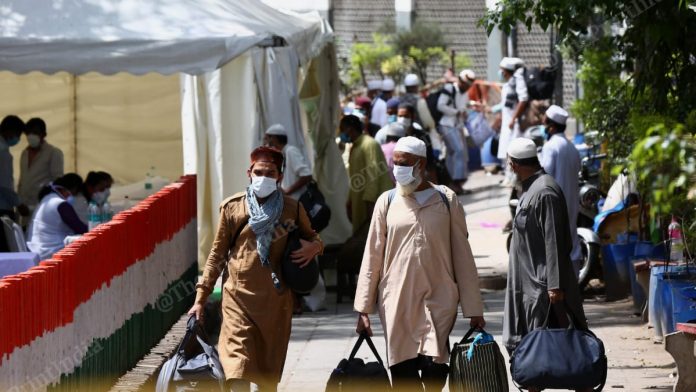INDIA:
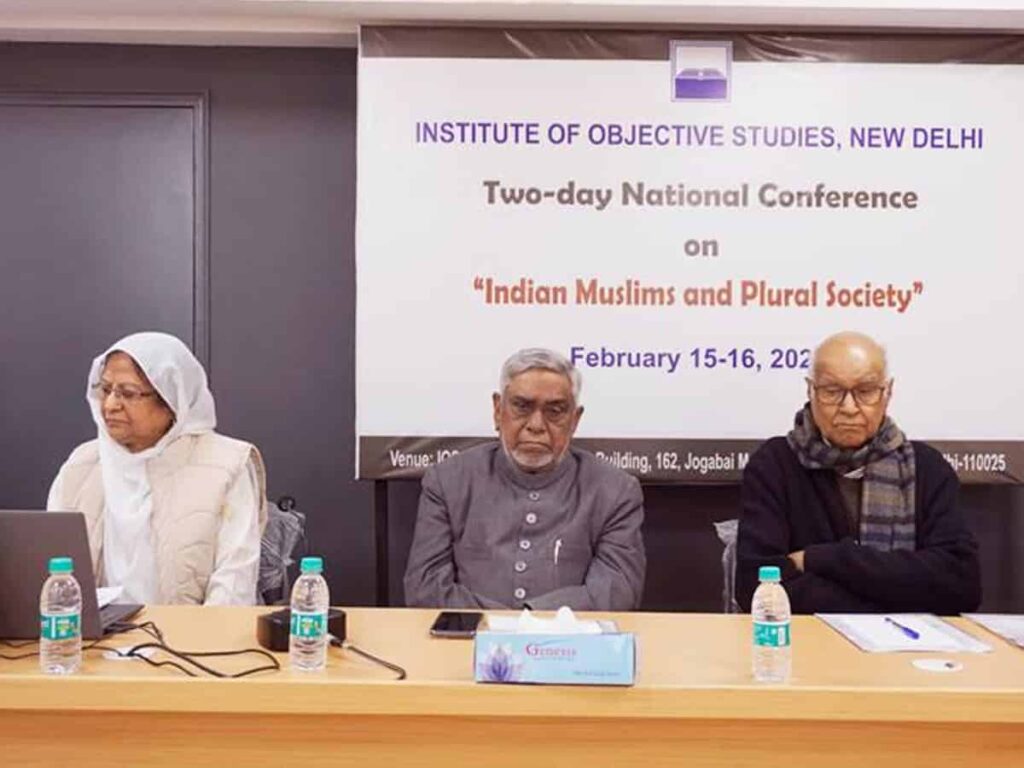
New Delhi:
Institute of Objective Studies, New Delhi, organised a two-day National Conference on “Indian Muslims and Plural Society” in hybrid mode from February 15 – 16.
Inaugural session
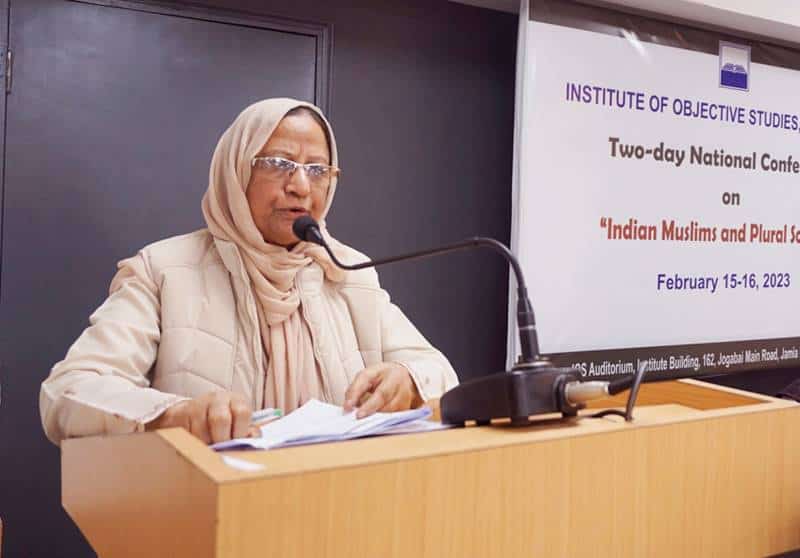
The inaugural session commenced with Prof Haseena Hashia, Assistant Secretary General, IOS, welcoming the guests and participants.
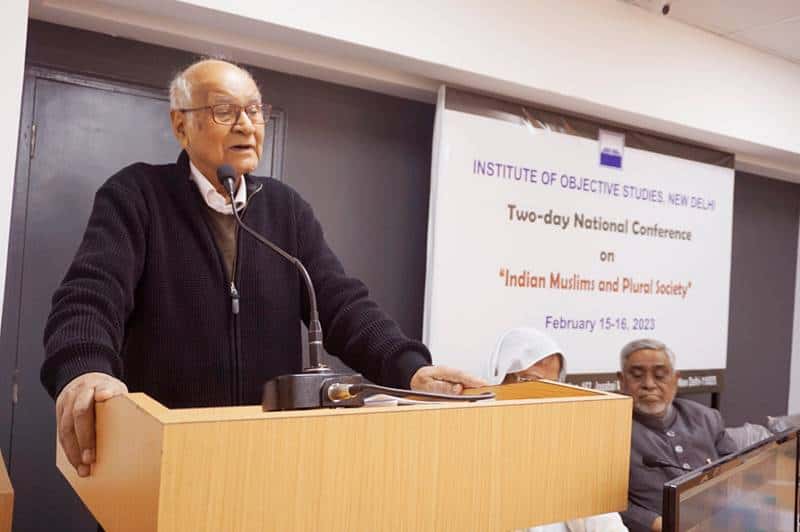
Prof M.H Qureshi, an eminent Geographer, talked about India witnessing numerous migrations over the last several centuries. “We have Nordics, Mediterranean, and Mongols—people from Central Asia, Persia and even Arabs who arrived in India through its southern-western coastal region. Therefore, India has immense diversity, he said.
He said that the Arabs came to the Kerala coast and brought many traditions that became part and parcel of India.
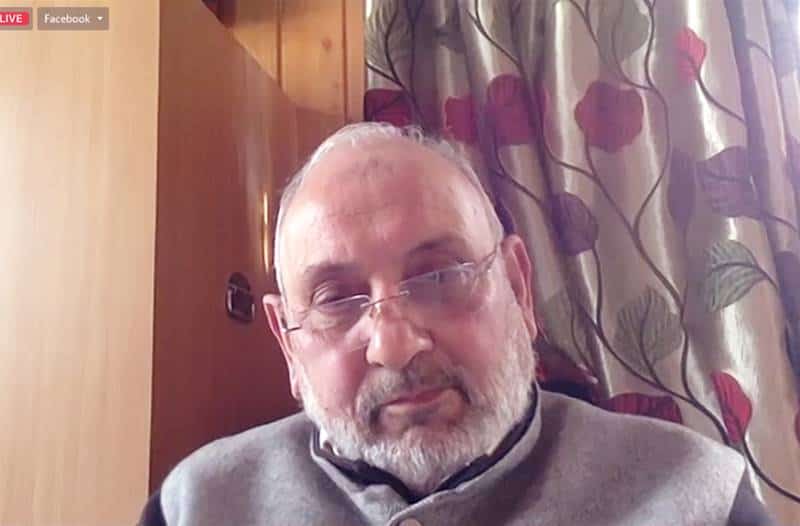
Professor Mehrajuddin Mir, former Vice-Chancellor of the Central University of Kashmir, said that the concept of pluralism was how to live together, tolerate others’ thoughts and ideas, and even understand opponents’ miseries for solutions to live in diversity. All religions have various sects, and thus, their practices differ. The conflicts are, therefore, intra-religious, interreligious and social, he noted.
Professor Mir quoted Indian Defence Minister, Rajnath Singh, who recently spoke about how one Imam and one Pundit shaped his career to understand brotherhood and oneness.
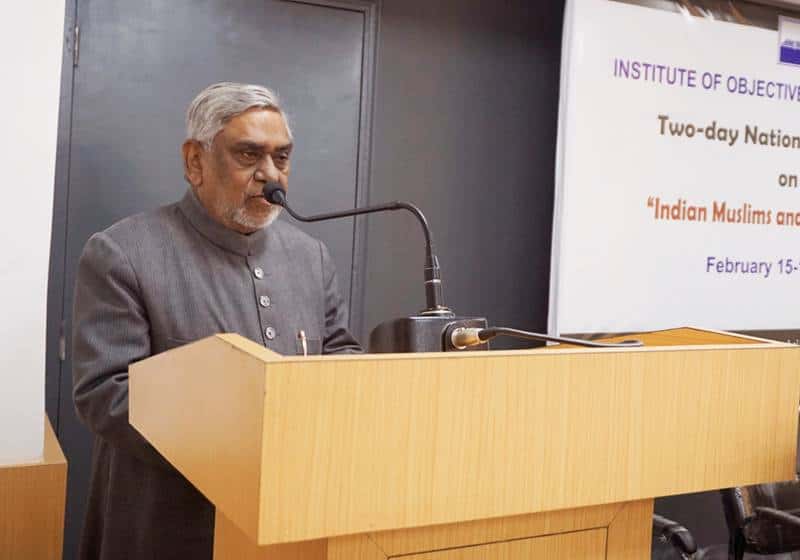
Professor Akhtarul Wasey, former President, Maulana Azad University, Jodhpur, Rajasthan, in his presidential address, said that Muslims came to India as traders and invaders. But once they came here, they delved into the culture and traditions of India and became one who enriched the nation to encourage pluralism. Muslims have contributed to India’s prosperity.
He said that how Dr. APJ Abdul Kalam became a global personality of Indian origin—a Muslim. The country couldn’t think of its missile programme without his theoretical contributions, he said.
Technical Session I
The 1st Technical Session began with the theme, “Genesis of Pluralism in India.” Professor Arshi Khan, Department of Political Science, AMU, Aligarh, as Moderator & Chairperson.
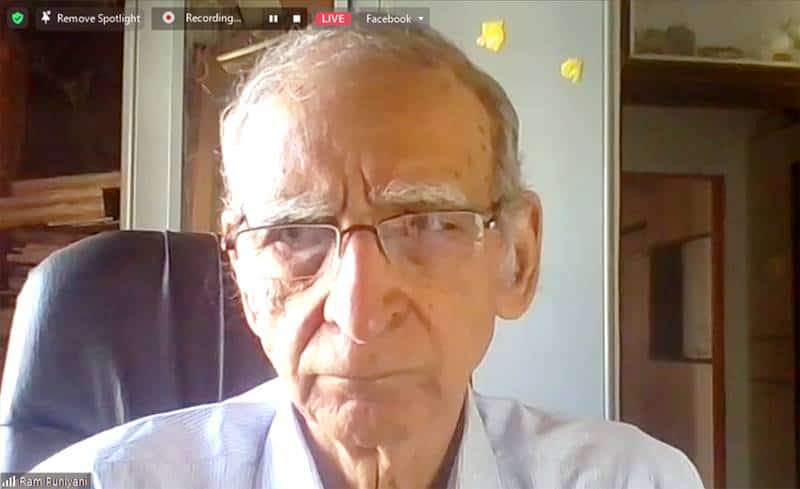
Dr. Ram Puniyani, Human Rights Activist and Writer, said, “There is a misconception in the country, especially against Muslims.” The alliance of civilizations defines plurality. Religions don’t have any nationality. They are universal. The Kings in India, whether Muslim or Hindu, ruled the nation for centuries with people of different faiths as their core governance teams. There was nothing like Muslim Kings or Hindu kings then, he explained.
He observed that calling Indian cultures as Hindu is a bigoted idea. Leaders like Jawaharlal Nehru, Mahatma Gandhi and Maulana Abul Kalam Azad brought secular spirits into the country. We have Sufi and Bhakti traditions that describe the morality of religions and humanity in India.
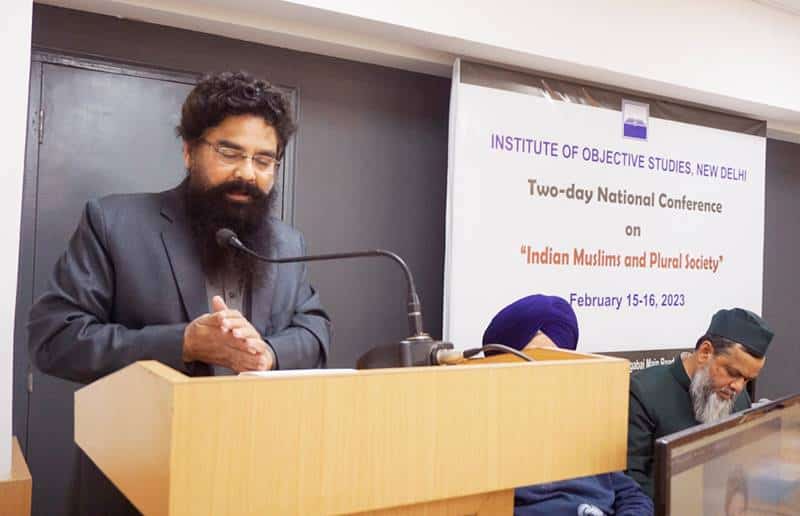
Professor Mohammad Sohrab, MMA Jauhar Academy of International Studies, Jamia Millia Islamia, New Delhi, described pluralism as a definition both from a conceptual and theoretical perspective. Primarily a religious and moral philosophy, pluralism was the acceptance of diversity. It is more than tolerance of differences. The conception of ‘We’ was essential to assess pluralism through organic social bonding. Pluralism in the Islamic context of acceptance and the country’s scenario today should be understood in the context of how the nation’s spirit developed in Madinah during the time of the Prophet, he elaborated.
He said that pluralism demands that your neighbour be considered an asset, not a liability. Diversity with pluralism creates resilience, but diversity without pluralism brings disaster, he concluded.
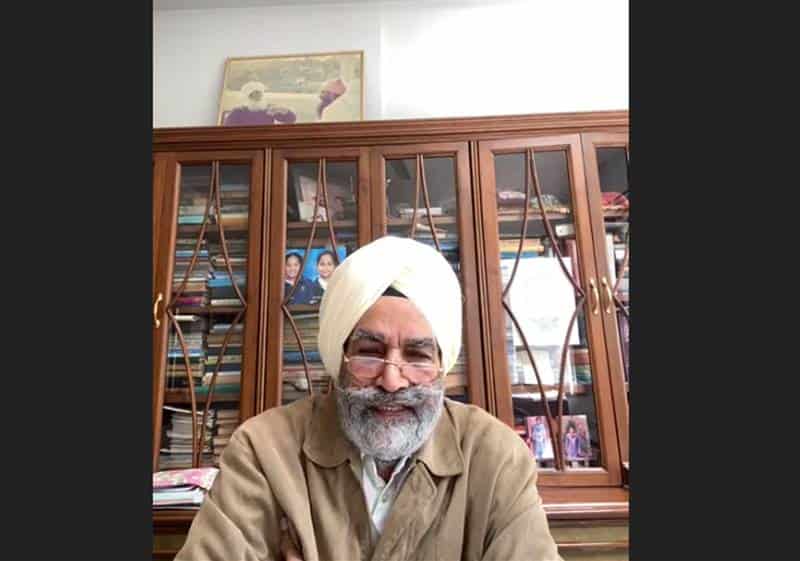
Gurtej Singh, IAS, Chandigarh, spoke about how India’s constitutional and political federalism paved the way for the constitution. The atrocities against Sikhs and their resistance were part of history, he said. The examples of pluralism can be understood from the Guru Granth of Sikh religion.
His book Sikh and Indian Civilization sheds light on how Sikhs were projected during partition.
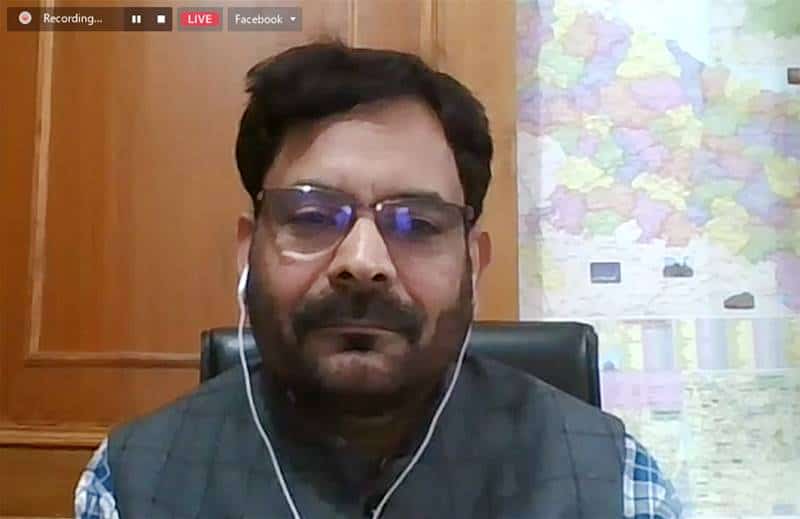
Sanjay K. Rai, a social activist from Lucknow, mentioned that “diversity doesn’t accept dictators.” He highlighted the importance of multicultural societies. Linguistic Pluralism was the need of the hour in today’s context. Societies with pluralism also impact by technological growth. Communities can’t be defined through one particular race or culture. He felt that there can’t be nation-building and growth without taking Muslims along who constitute 15-20% population in India. The One Nation, One Culture concept can only work in some countries. One can’t find books on Hitler in Germany today. Mussolini’s home has been destroyed in his country as people don’t want him to be remembered. It symbolizes how those going against pluralism perish from the leaflets of history, he concluded.
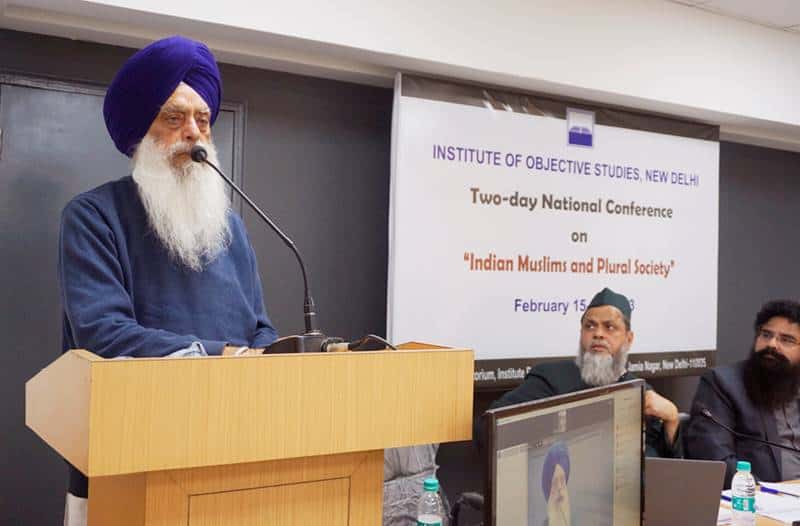
Mr. Gurdeep Singh, a Sikh leader from Bhatinda, Punjab, stressed that it was high time to focus on the future, in view of the experiences of the past and present to grow in a plural society. Mistakes could be there in the past, but remembering those only won’t solve the purpose. It will hinder progress. He warned that today’s rulers in India were breaking the very ascent of Indian culture and unity.
He said that when Kashmiri Muslims are tortured, others in the country feel their pain.
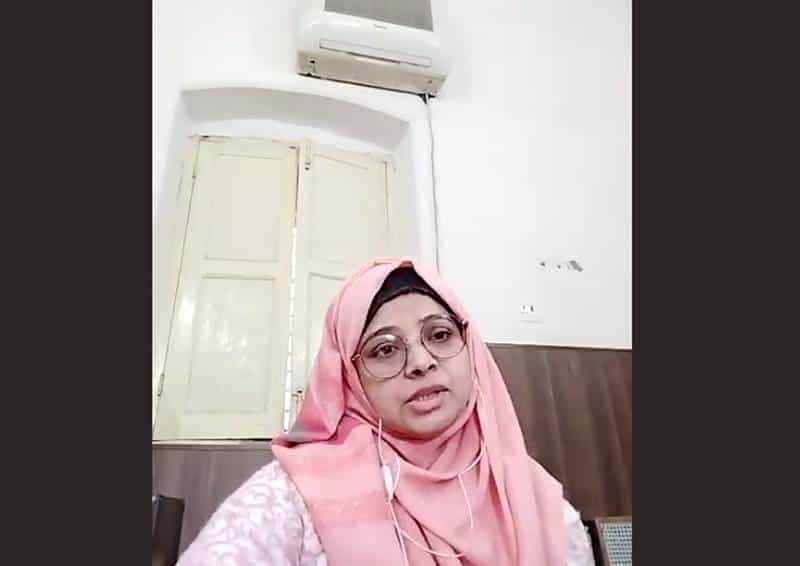
Dr. Lubna Naaz from the Department of Islamic Studies, Women’s College, AMU, spoke on “An Islamic Perspective on Peaceful Coexistence.”
Technical Session-II
Focused on the theme, Role of Islam to Strengthen Pluralism in India, the Technical Session II started under the Chairperson, Professor M. Ishaque from the Department of Islamic Studies, Jamia Millia Islamia.
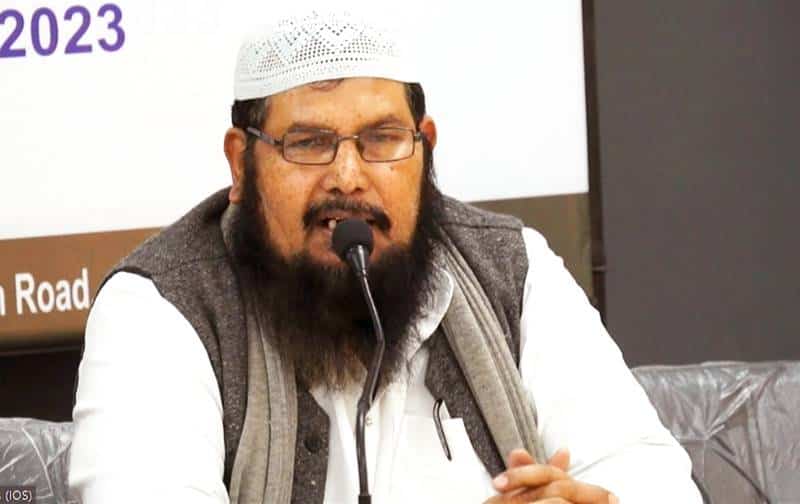
Maulana Abdul Hameed Nomani, Former General Secretary, All India Muslim Majlis-e-Mushawarat, Delhi, highlighted that two things are required to be properly understood: the Creator, and the Creator’s motive. He said that Sufis always made one feel the independence to think and lead life. Islam always propagates the rights of neighbours, relatives and much more. Sufi Khwaja Moinuddin Chisti wore similar dresses like Indian Sadhus to ascertain people of his time, irrespective of their religious faiths, connected with him.
He said that Swami Dayanand and Raja Ram Mohan Roy kept Hindu philosophy out of their movements but promoted social reforms in the societies applicable to all faiths for social betterment. “Faith is vital, like Allah’s mercy, unlike social practices that change with time,” he said. India’s beauty was in its diversity of religious thoughts. In pre-Islam Arab tribes kept fighting for generations on a single issue of their forefathers, but the scenario has changed. Islam accepts variety in pluralism, from religious to traditional to social practices. Islam as a religion must not change its basic principles. It is a Sanatan religion with firm principles, he concluded.
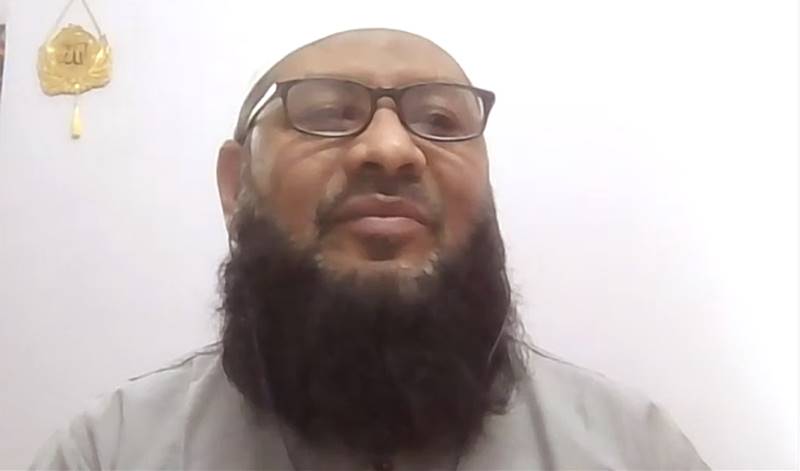
Prof Faheem Akhtar Nadvi, Head of the Department of Islamic Studies, MANUU, Hyderabad, emphasized that the role of Islam in strengthening pluralism in India is vital. Pluralism is a society where people of all religions reside and respect each other. India is one of the best examples where pluralism has stayed for centuries. He emphasized that India will grow only when pluralism is projected in practice.
To be Continued..
source: http://www.siasat.com / The Siasat Daily / Home> Featured News / by News Desk (headline edited) / February 25th, 2023
